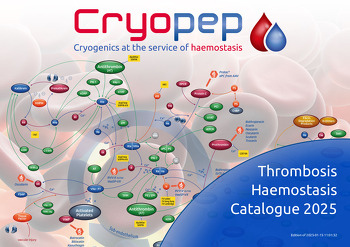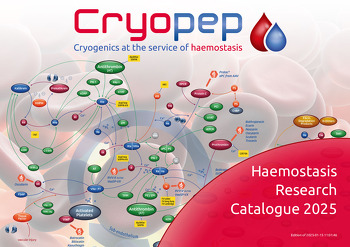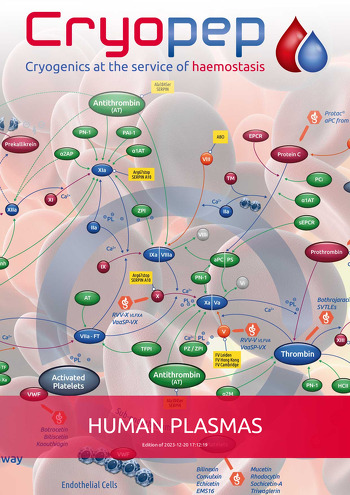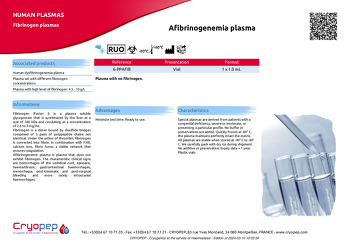HEMOSTASIS COAGULATION RESEARCH REAGENTS HUMAN PLASMAS FIBRINOGEN PLASMAS
Afibrinogenemia plasma
Plasma with no fibrinogen.
Advantages
Minimize test time. Ready to use.
Informations
Fibrinogen (Factor I) is a plasma soluble glycoprotein that is synthesized by the liver at a size of 340 kDa and circulating at a concentration of 2.6 to 3 mg/mL.
Fibrinogen is a dimer bound by disulfide bridges composed of 3 pairs of polypeptide chains not identical. Under the action of thrombin, fibrinogen is converted into fibrin. In combination with FXIII, calcium ions, fibrin forms a stable network that ensures coagulation.
Afibrinogenemic plasma is plasma that does not exhibit fibrinogen. The characteristic clinical signs are hemorrhages of the umbilical cord, epistaxis, haemarthrosis, gastrointestinal haemorrhages, menorrhagia, post-traumatic and post-surgical bleeding and more rarely intracranial haemorrhages.
Documentation
Download the product sheetPrice list, safety data sheets and notices are accessible to our registered customers.
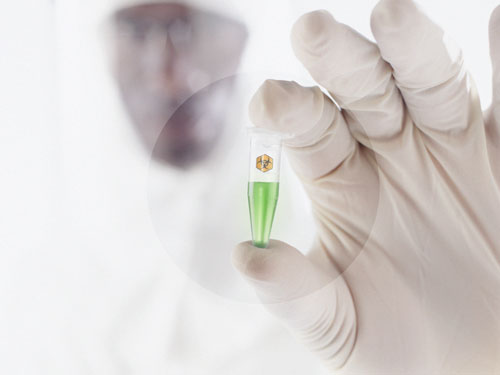






References
| 6-PPAFIB | Vial | 1 x 1.0 mL |











